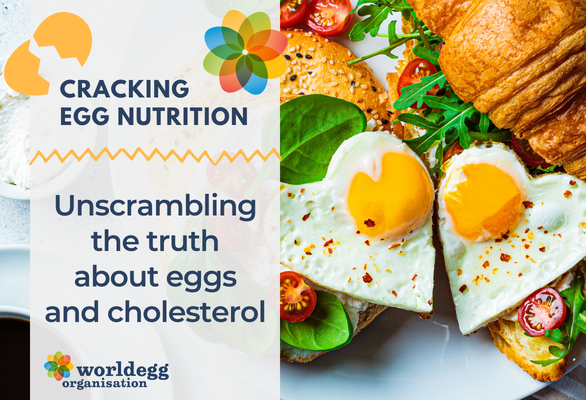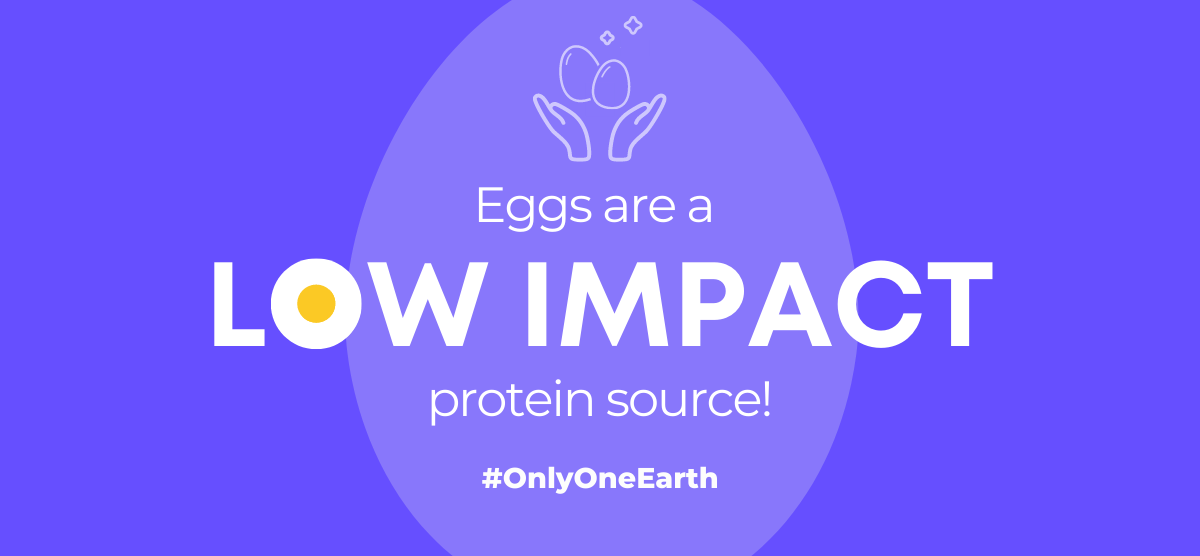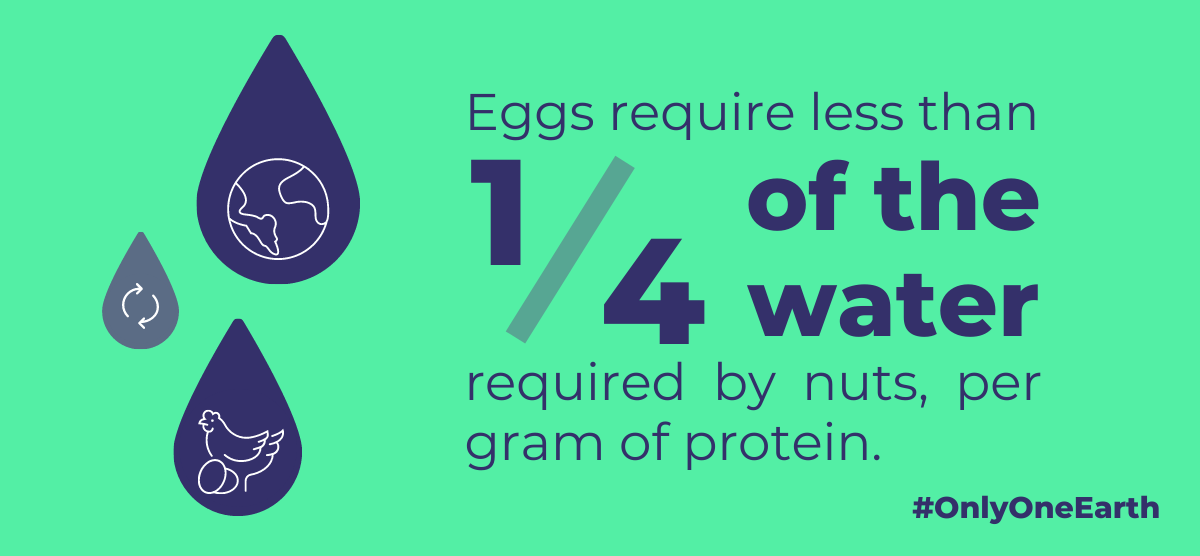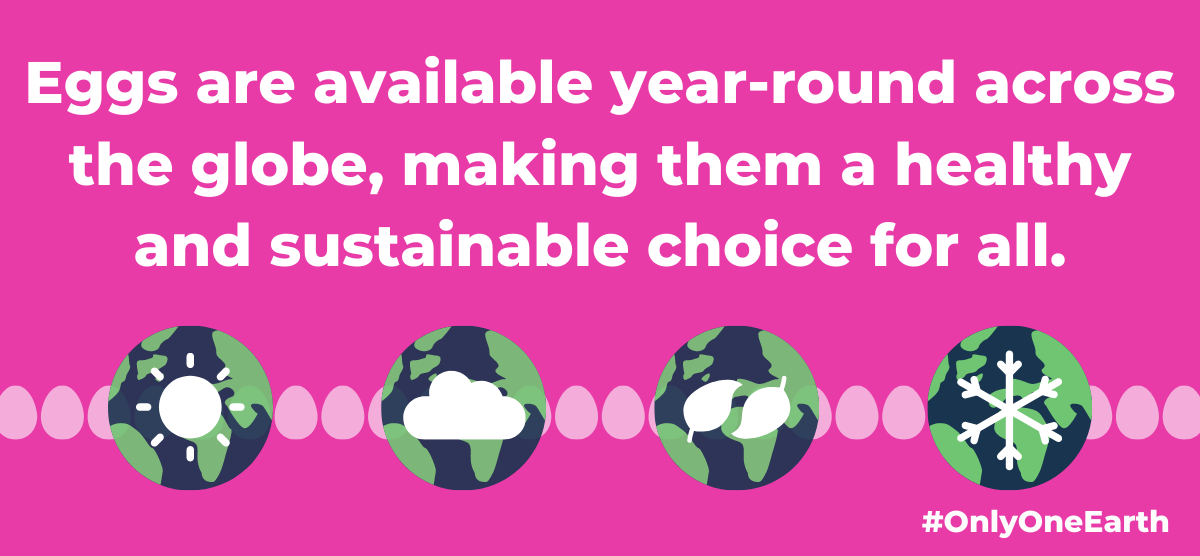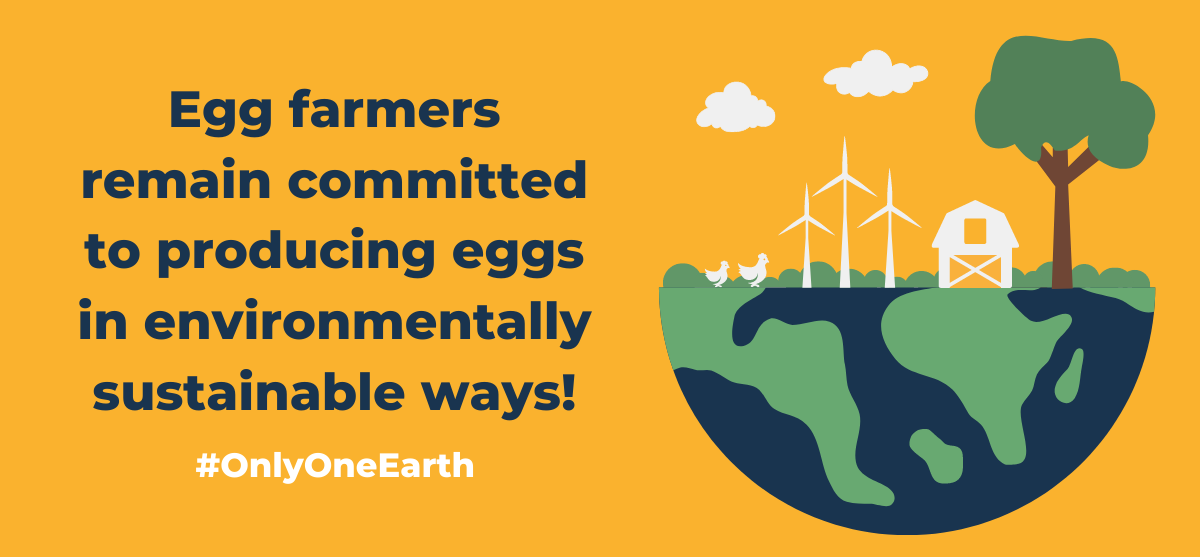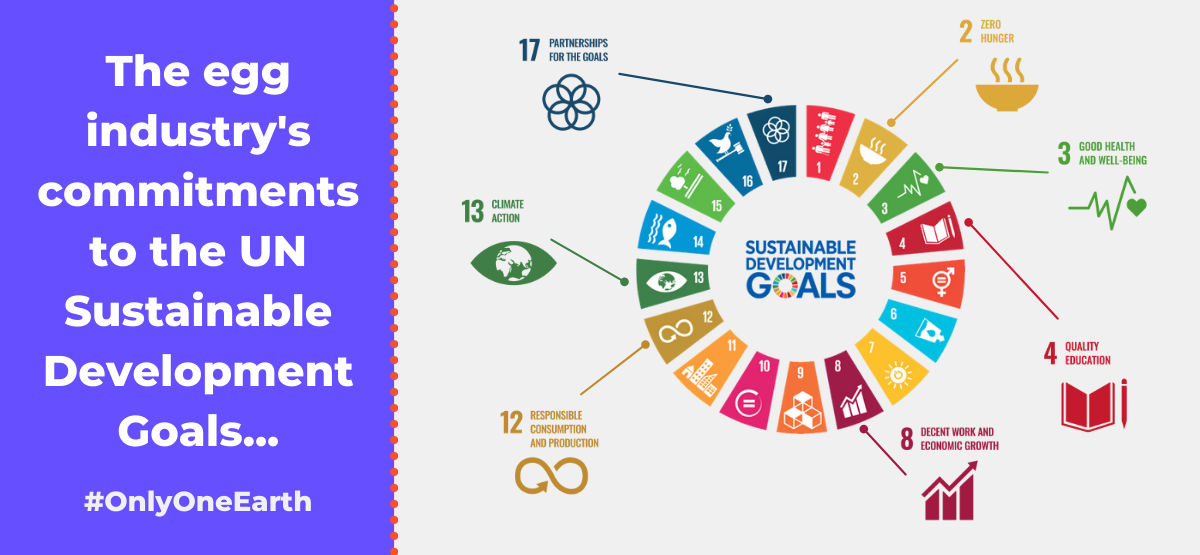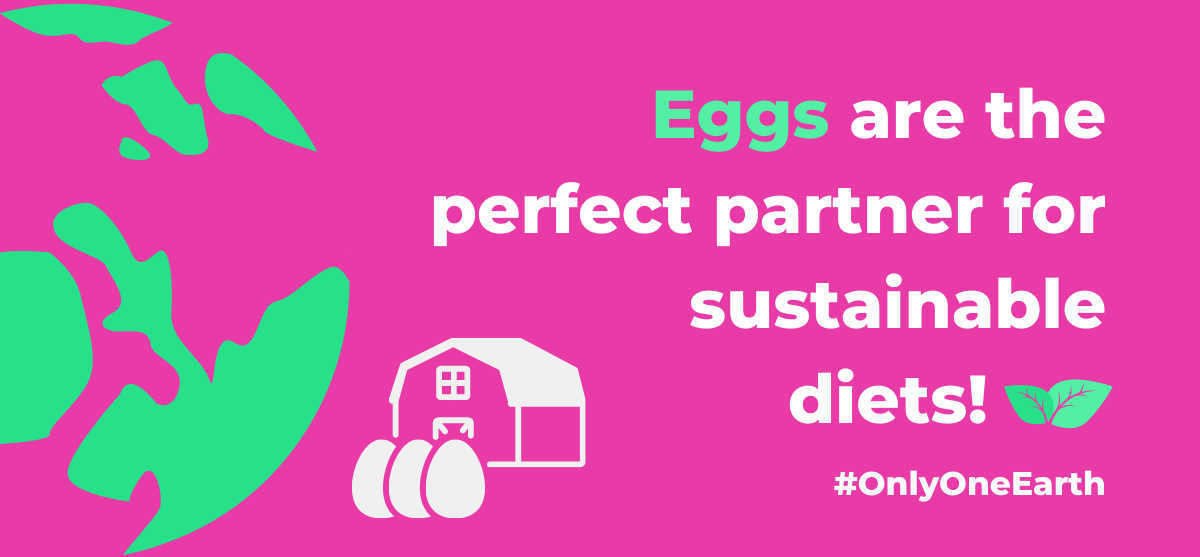World Environment Day 2022 | Taking care of the Earth with eggs
It is widely known that eggs contain the majority of the vitamins, minerals and antioxidants required by the body, providing much-needed nutrition across the globe. But that is no longer all we look for in our food.
As our diets evolve and we develop sustainable consumption patterns to better our health and reduce our environmental impact, let’s explore why eggs can and should play an essential role in future food systems as a sustainable food of choice.
Protecting our planet
Incredibly, eggs are not just good for human health, but planetary health too! Eggs are a low impact protein source, with the lowest environmental footprint of common animal protein sources and comparable to some plant-based foods1.
This is thanks to new efficiencies and significant productivity gains that have been made on-farm and in the egg supply chain in recent years. For example, in Canada the environmental footprint of the egg production supply chain declined by almost 50% between 1962 and 2012, while egg production increased by 50%2.
Similarly, in 2010, the environmental footprint of a kilogram of eggs produced in the USA had reduced by 65% compared to 1960, with greenhouse gas emissions reducing by 71%3. Eggs also use little water compared to other popular protein sources, like nuts, which require over four times more water than eggs, per gram of protein4.
Furthermore, egg businesses are always looking for new ways to make processes more environmentally sustainable and efficient, continually striving towards nature-positive production.
In Australia, 10 of the country’s 12 largest egg producers have already implemented some form of solar energy on their farms. And in Canada, the world’s first Net Zero barn is in operation. The egg industry is also actively working towards more sustainable soya sourcing, to help prevent deforestation in South America.
Sustainable by nature
The world is becoming increasingly aware of the environmental importance of sustainable food supplies and the benefits of eating local, seasonal food. Seasonality of produce can also impact the affordability of produce, often leading to those on the lowest incomes having to make substitutions to meet their nutritional intake requirement.
Eggs are available year-round across the globe and benefit from low-price fluctuation, putting them in a great position sustainably alongside their incredible nutritional attributes5.
Committed to continuous growth
The egg industry remains committed to producing nutritious foods in environmentally sound and responsible ways.
In 2015, 193 world leaders committed to the United Nations (UN) 17 Sustainable Development Goals (SDGs). These goals represent a shared vision to eradicate poverty and social inequality, and tackle climate change by 2030.
In 2018, the International Egg Commission (IEC) announced the Global Initiative for Sustainable Eggs (GISE), a multi-stakeholder initiative to advocate ongoing improvement in sustainability within the egg industry and work in partnership with the UN to fulfil its SDGs.
Of the 17 SDGs, the global egg industry has identified 7 primary objectives where it is already making a significant impact through a range of dedicated sustainability initiatives. Find out more.
The IEC believes sustainability should be fully integrated through every element of the egg industry and aspires to a global egg value chain that is environmentally sound, socially responsible, and economically viable.
Choose eggs this World Environment Day
The multitude of essential nutrients within the egg can be matched by very few foods. Eggs provide essential vitamins and minerals, as well as offering the highest quality protein naturally available.
Coupled with their low environmental impact, eggs are the perfect partner for affordable, healthy, and sustainable diets today, as we look to the future of our planet.
References
1 World Resources Institute (WRI)
4 Mekonnen MM & Hoekstra AY (2012)
Promote the power of the egg!
To help you celebrate World Environment Day, the IEC has developed a downloadable industry toolkit, including key messages, a range of sample social media posts, and matching graphics for Instagram, Twitter and Facebook.
Download the World Environment Day toolkit (English)
Download the World Environment Day toolkit (Spanish)
Egg-cellent fuel for your fitness goals
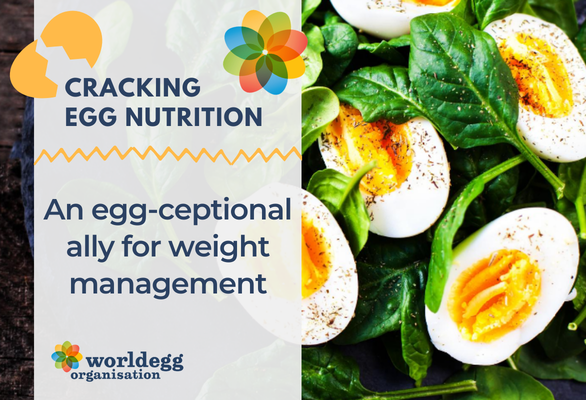
An egg-ceptional ally for weight management
